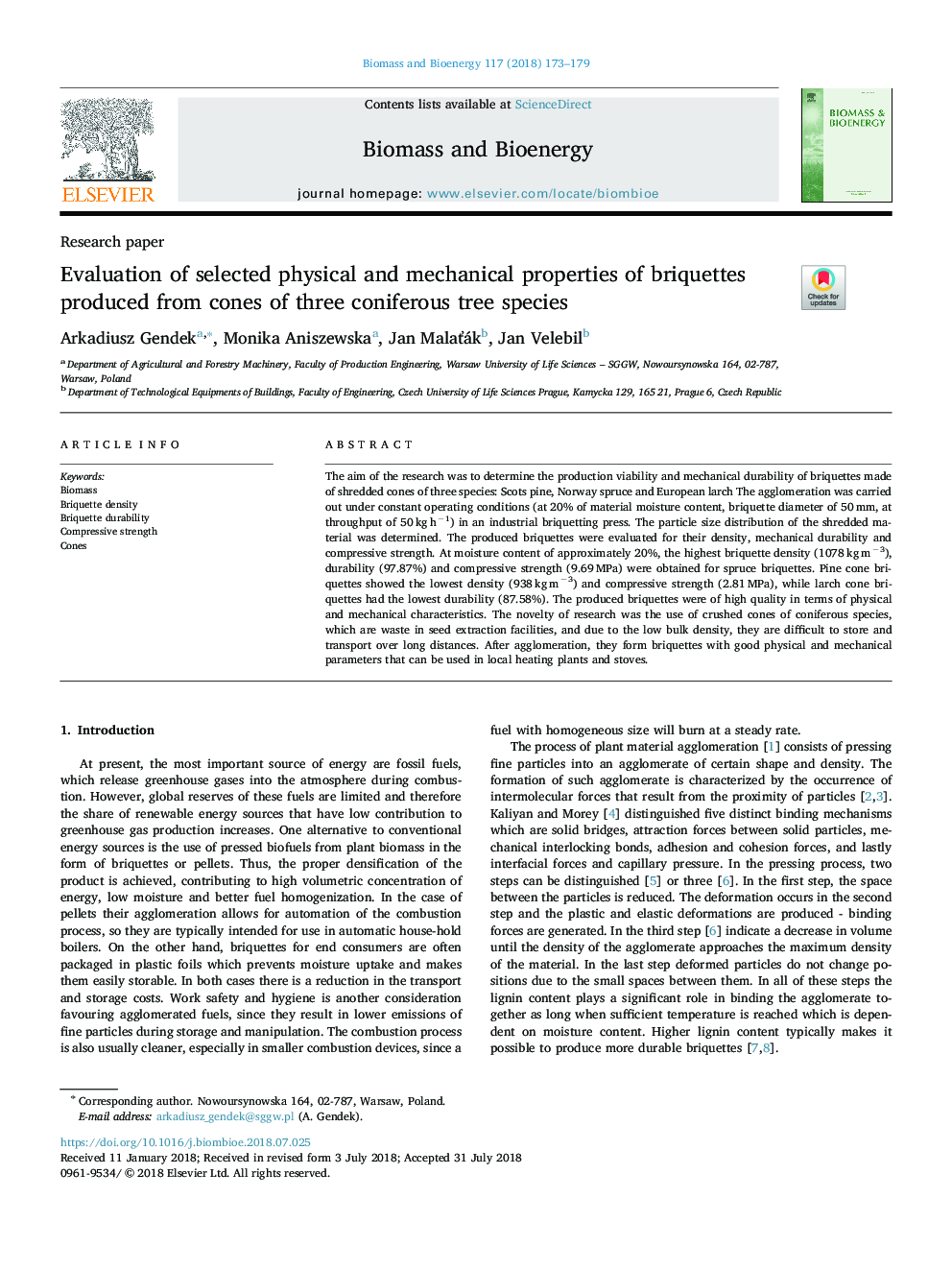| Article ID | Journal | Published Year | Pages | File Type |
|---|---|---|---|---|
| 7062809 | Biomass and Bioenergy | 2018 | 7 Pages |
Abstract
The aim of the research was to determine the production viability and mechanical durability of briquettes made of shredded cones of three species: Scots pine, Norway spruce and European larch The agglomeration was carried out under constant operating conditions (at 20% of material moisture content, briquette diameter of 50â¯mm, at throughput of 50â¯kgâ¯hâ1) in an industrial briquetting press. The particle size distribution of the shredded material was determined. The produced briquettes were evaluated for their density, mechanical durability and compressive strength. At moisture content of approximately 20%, the highest briquette density (1078â¯kgâ¯mâ3), durability (97.87%) and compressive strength (9.69â¯MPa) were obtained for spruce briquettes. Pine cone briquettes showed the lowest density (938â¯kgâ¯mâ3) and compressive strength (2.81â¯MPa), while larch cone briquettes had the lowest durability (87.58%). The produced briquettes were of high quality in terms of physical and mechanical characteristics. The novelty of research was the use of crushed cones of coniferous species, which are waste in seed extraction facilities, and due to the low bulk density, they are difficult to store and transport over long distances. After agglomeration, they form briquettes with good physical and mechanical parameters that can be used in local heating plants and stoves.
Keywords
Related Topics
Physical Sciences and Engineering
Chemical Engineering
Process Chemistry and Technology
Authors
Arkadiusz Gendek, Monika Aniszewska, Jan MalaÅ¥ák, Jan Velebil,
